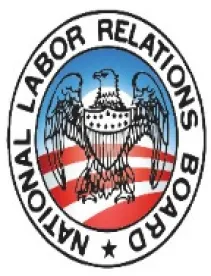During the last decade employers have been made acutely (and often times painfully) aware of the workplace evils of harassment, bullying, workplace violence and other coarse workplace conduct. Efforts to curb such conduct by both federal and state enactments and enforcement have been ramped up. And as such, most employees of today have (rightly) come to expect that such behaviors are not to be tolerated in the workplace. The NLRB, however, seems rather oblivious to such realities.
The NLRB’s recent decision in Plaza Auto Center, Inc. 360 NLRB No. 117 (May 28, 2014) reinforces a troubling disconnect: the sanctioning under the NLRA of conduct that in almost any other situation would be considered well outside of expected modern workplace norms.
In Plaza Auto Center, the NLRB, after being reversed by the Ninth Circuit Court of Appeals, took pains to find (for a second time) that the NLRA required reinstatement of a fired worker after a significant workplace outburst – conduct that the ALJ had determined was in fact “belligerent,” “obscene and personally denigrating,” and “accompanied by menacing conduct and language.” The subject employee, after admittedly participating earlier in protected concerted activity, also admittedly lost his cool and then called his boss a “f***ing motherf***ing” a “f***ing crook” and an “asshole”, pushed his chair aside and told his boss he would “regret it.” Of course, his employer fired him. Then the NLRB got involved.
Applying the factors set forth in Atlantic Steel, 245 NLRB 814 (1979), the NLRB used so called “objective” reasoning and “balancing,” to sidestep the explicit findings of the ALJ (who they again reversed) and found the employee’s conduct protected. The Board’s analysis predictably fell back on a theme common in many recent NLRB decisions: as for any perceived threat, the words used by the employee (or in other contexts a particular handbook policy) were ambiguous, not clear, and possibly subject to any number of interpretations. Thus, they could not be considered “objectively” threatening. Additionally, because the comments were not made in front of many employees they were less disruptive (apparently giving license to “cuss out the boss” as long as it is behind closed doors); and concerning the language used by the employee toward his boss – if looked at “objectively” it really was not that bad. In this regard, the Board reasoned that the Atlantic Steelfactors (a case that involved a foundry, not a small family-owned auto dealership as was the case in Plaza Auto Center) required employer recognition that “the language of the workplace is not the language of a polite society” and that “impulsive behavior” must sometimes be tolerated. This would of course likely come as some surprise to many employers given other competing considerations and legal obligations, a fact not addressed by the Board majority.
The result in this case calls into question the so-called “objective” standard used by the Board. The Board’s decision ignores the fact that the conduct in Plaza AutoCenter is not the type most employers would ever find permissible in most modern workplaces. Instead, the Board seems to indicate that because some workplaces (such as the foundry in Atlantic Steel) may tolerate profanity or other coarse language from their employees, this type of outburst must be tolerated by all employers. This outcome is hard to swallow for many employers who have made efforts to curtail such behavior in order to create more efficient, team-oriented workplaces, free of harassment and bullying. This conclusion was not lost on Board Member Johnson, who prepared a scathing dissent in Plaza Auto Center, criticizing the Board majority for sanctioning the “profane and insubordinate conduct” discussed above as the norm.
Furthermore, there is an irony to the Board’s use of arcane standards of what is permissible in the workplace, while at the same time the Board routinely trumpets its desire to stay relevant by turning its focus to social media, expanding its reach to non-union employers, and negating handbook and other traditional employer policies of all kinds. Until the Board recognizes that staying relevant also means adopting standards of conduct that reflect modern workplace norms, it will only impede its ultimate mission – to ensure protection of the rights of all employees, including those who want to work in a productive and safe environment, free of harassment and bullying.




 />i
/>i

